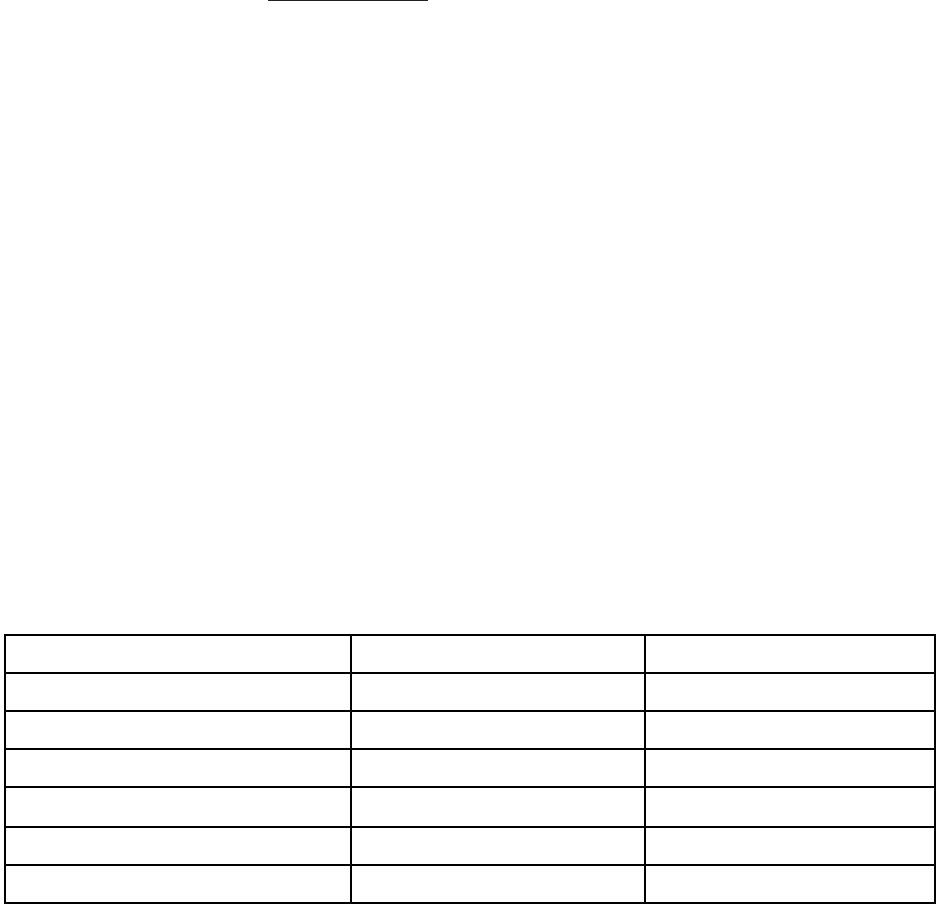
-1.12-
2. Distress calls and Distress message
(1) Speak slowly and distinctly, “MAYDAY, MAYDAY, MAYDAY, pronounced as the
French expression “m’aider”.
(2) This is;
(3) The name of your vessel and call sign three times.
Then, continue with the distress message, which consists of:
(1) The distress signal MAYDAY;
(2) The name of the mobile station in distress;
(3) Particulars of its position (in latitude and longitude)
(4) The nature of the distress;
(5) The kind of assistance desired;
(6) Any other information which might facilitate rescue, for length, color, and type of
vessels, number of persons on board.
3. Indicate the end of message by saying “Over.”
4. When you receive no answer to a distress message, repeat at intervals over again the
radiotelephone alarm signal, the distress call and the distress message. Repeat the same on
other distress frequencies.
Distress frequencies
All distress frequencies including 2182 kHz are shown below:
Telephony SSB (kHz, Carrier) DSC (kHz, Center) Telex (kHz, Center)
2 182 2 187.5V 2 174.5
4 125 <ITU 421> 4 207.5 4 177.5
6 215 <ITU 606> 6 312 6 268
8 291 <ITU 833> 8 414.5 8 376.5
12 290 <ITU 1221> 12 577 12 520
16 420 <ITU 1621> 16 804.5 16 695
For other Telex frequencies, refer to Appendix.


















